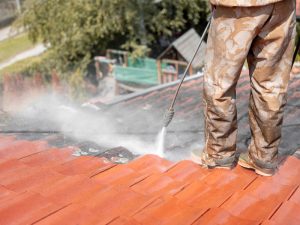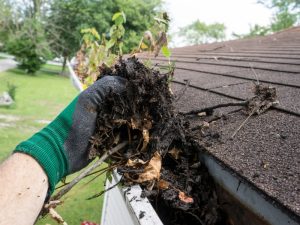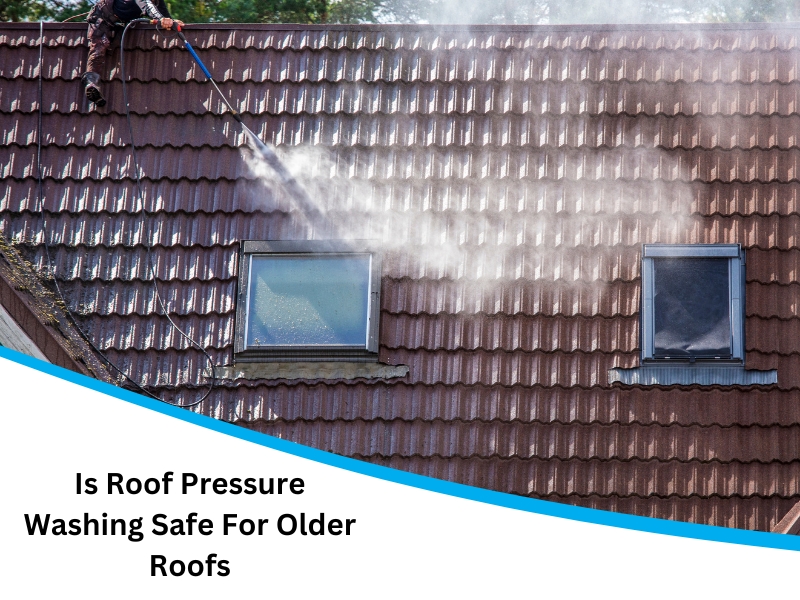Maintaining the health and longevity of your roof is essential for safeguarding your home or business. Roof cleaning is one way to ensure its durability, but if you have an older roof, you might wonder if pressure washing is a safe option. In this article, we’ll explore what roof pressure washing involves, the potential risks for older roofs, and whether it’s the right choice for your home or business.
What is roof pressure washing, and how does it work?
Roof pressure washing is a cleaning method that uses a high-powered water jet to remove dirt, moss, algae, and other debris from your roof’s surface. The process can help restore your roof’s appearance, prevent the growth of harmful substances, and extend its life.
- High pressure water spray: The water pressure is strong enough to remove dirt and debris from the surface of the roof.
- Cleaning agents: Often, special cleaning solutions are added to help break down stains and moss.
- Equipment used: Pressure washers, either handheld or mounted, are used to direct the high-pressure water onto the roof.
Is roof pressure washing safe for older roofs?
Older roofs are often more fragile due to years of wear and tear, making them more vulnerable to damage from high-pressure water. However, if done properly, roof pressure washing can still be safe for older roofs. It’s important to understand the specific needs of your roof and assess its condition before deciding to pressure wash. Key considerations for older roofs:
- Roof Material: Different roofing materials respond differently to pressure washing. Tile, metal, and slate roofs, for example, can handle pressure washing better than shingle roofs.
- Condition of the Roof: If your roof has already experienced significant wear or has damaged shingles, pressure washing could exacerbate these issues.
- Professional Expertise: Having a professional assess and perform the pressure washing ensures it’s done with the correct pressure settings and techniques for your roof type.
How can pressure washing affect different roof types?
Not all roofs are created equal, and each type of roofing material may react differently to pressure washing. Understanding how pressure washing can affect your roof type is crucial for preserving its integrity. Effects on common roof types:
- Asphalt Shingles: Pressure washing on asphalt shingles can lead to granule loss, which reduces their lifespan. Shingles are particularly sensitive to high pressure, which can cause them to crack or lift.
- Clay or Concrete Tiles: These roofs can generally handle pressure washing better than shingles, but too much pressure can cause tiles to break or become dislodged.
- Metal Roofs: Metal roofs are durable and can typically withstand pressure washing. However, if not done properly, high pressure can still cause scratches or dents.
- Slate Roofs: Slate is a brittle material, and high-pressure washing can cause it to crack or break.

What are the risks of pressure washing an older roof?
While pressure washing can be an effective cleaning method, several risks are involved—especially for older roofs. The primary concern is the potential damage caused by the high-pressure water spray. Risks of pressure washing older roofs include:
- Shingle or Tile Damage: High pressure can cause shingles or tiles to break, crack, or lift, leading to leaks and costly repairs.
- Granule Loss: Asphalt shingles, in particular, may lose their protective granules under pressure washing, which can shorten their lifespan.
- Water Penetration: The force of the water can push moisture into small cracks or openings, leading to water damage or even mould growth.
- Structural Damage: If the roof is already compromised, the high pressure may cause further deterioration, especially in areas where the materials are weak.
Given these risks, it’s crucial to assess whether pressure washing is worth it for your older roof. Moreover, when considering roof cleaning, it’s important to explore different types of roof cleaning methods, as some alternatives may be gentler and less likely to cause damage.
Should you choose pressure washing or alternative roof cleaning methods?
While pressure washing is a popular cleaning method, it’s not always the best option for older roofs. Alternative cleaning methods may be gentler on your roof while still providing effective results.
- Manual Cleaning: In some cases, professionals may choose to manually remove moss, leaves, and debris from your roof. This method is more labour-intensive but gentler on the roof.
- Soft Washing: This method uses a low-pressure water stream combined with cleaning solutions to remove dirt, algae, and moss growth on roofs without the risk of damage.
- Roof Coating: For some roofs, applying a protective coating can help to prevent future damage from elements like moss, algae, or water.
Each cleaning method has its pros and cons, and choosing the right one will depend on your roof’s condition and material.
How can you maintain the safety and longevity of your roof after pressure washing?
If you do opt for pressure washing, it’s essential to take steps to maintain your roof’s safety and longevity afterwards. Proper maintenance can prevent future issues and help your roof last longer. Additionally, improving home ventilation and airtightness can complement your roof care by ensuring optimal airflow and reducing moisture buildup.
- Regular Inspections: After cleaning, inspect your roof regularly for signs of damage or wear.
- Repairs: Address any issues you find immediately, such as cracked tiles or missing shingles, to avoid further damage.
- Gutter Maintenance: Ensure your gutters are clear of debris to allow water to flow freely off your roof.
- Roof Coating: Consider applying a roof coating to provide added protection against moss, algae, and water damage

How can professional roof cleaning services help protect your investment?
Hiring expert roof cleaning services can make all the difference in ensuring the safety and longevity of your roof. Professionals have the experience and equipment to perform pressure washing and other cleaning methods safely and effectively.
How professionals can help:
- Expert Assessment: A professional will assess your roof’s condition and recommend the best cleaning method based on its material and age.
- Proper Equipment: Roofing experts use specialised equipment that’s designed to clean roofs without causing damage.
- Preventative Care: Professional roof cleaning services often include preventative measures, such as moss removal or roof coatings, to protect your roof from future damage.
By choosing a reputable service, you can rest assured that your roof will receive the best care and maintenance, keeping it in top shape for years to come.
Need professional roof cleaning?
If you’re unsure whether roof pressure washing is the best option for your older roof, High Class Roofing is here to help. Our team of experts offers safe, reliable roof cleaning services in Sydney. We specialise in roof repairs, restoration, and maintenance, and we can recommend the most effective cleaning method for your roof type. Call High Class Roofing today to schedule an assessment and protect your investment with professional roof care.


